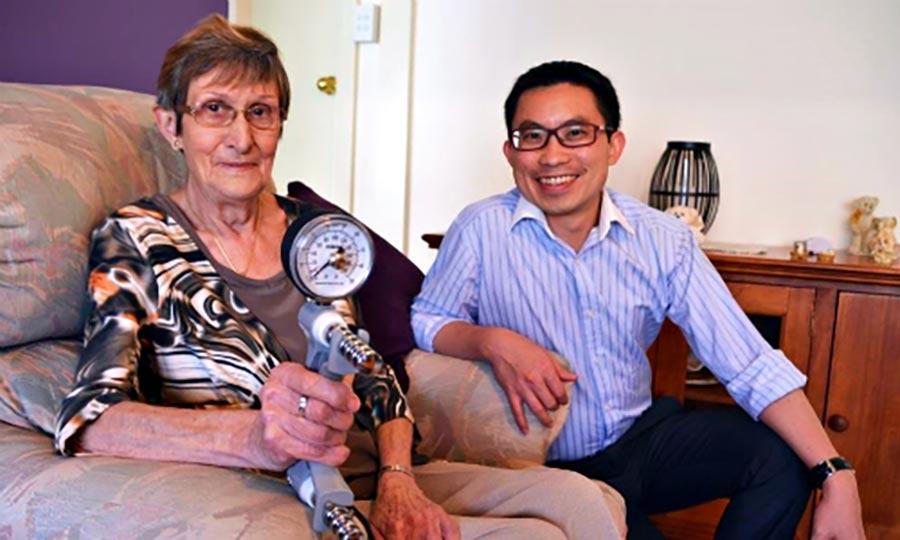Sarcopenia Burden
We will describe the impact of sarcopenia in terms of the prevalence and consequences of frailty. This will help increase awareness amongst consumers, service providers, funders and policy makers. It will also inform health service planning.
-
Sarcopenia and health outcomes
Lead investigator: Associate Professor Solomon Yu
Sarcopenia is the loss of muscle mass and muscle performance and is associated with frailty.

As part of his PhD research, Associate Professor Yu confirmed that the prevalence of sarcopenia in older South Australian men was 6.4% but higher at 8.5% in women. The prevalence increased with increasing age with almost one in five South Australians aged 80 years and older affected by Sarcopenia.
Under the supervision of Associate Professor Yu, Dr Tsung Woo (TQEH Geriatrics Advanced Trainee) published a systematic review that highlighted that good quality and longitudinal studies where sarcopenia is defined as per consensus guidelines are required to determine the impact of sarcopenia on quality of life and other health issues are necessary. Dr Tsung Woo has followed through on his findings and has recently published a cross-sectional research to investigate the association between sarcopenia and quality of life.
Associate Professor Yu has been involved in Australian sarcopenia taskforce and is one of the authors of a consensus statement that established an operational definition of sarcopenia in Australia and New Zealand.
Several other ongoing research projects:
- In collaboration with Dr Nguyen from Vietnam, Associate Professor Yu has also been investigating the association between sarcopenia and lung function in older South Australians. The findings of this investigation have been presented in national and international conferences. The manuscript of this study is currently in draft.
- Under the supervision of Associate Professor Yu, Dr Siti Nawi has recently completed an invited scoping review on clinical screening tools for sarcopenia for community dwellers. This project has identified several potential future research projects. The manuscript has been submitted for review.
- Collaboration with Associate Professor Wee Shiong Lim, Principle Investigator, GERILABS study and Research Lead, Institute of Geriatrics and Active Aging. Building upon the success of the predecessor Geri-LABS cohort study, the Geri-LABS-2 Study aims to:
- Develop a clinical/biomarker phenotype of Sarcopenia and Osteosarcopenic obesity (OSO) for prediction of community-dwelling older adults at risk of adverse outcomes of frailty or functional decline.
- Correlate longitudinal changes in blood-based (myokine, osteokine and adipokine) and imaging (bioelectric impedance analysis and dual energy X-ray absorptiometry) biomarkers for skeletal muscle, bone and fat with physical performance, frailty, and functional outcomes in sarcopenia and OSO.
- The study is organized into the 4 core pillars of participant, clinical, imaging and blood biomarkers, and involved a multi-disciplinary team of experts from different fields, including overseas collaborators such as A/Prof Solomon Yu from the University of Adelaide
- Tan Tock Seng Hospital - Institute of Geriatrics and Active Ageing – Patient Guide to Frailty
The next steps of his research strategy are to investigate the longer-term impact of sarcopenia on health outcomes and potential clinical screening tools for sarcopenia.
Media contact: Associate Professor Solomon Yu
